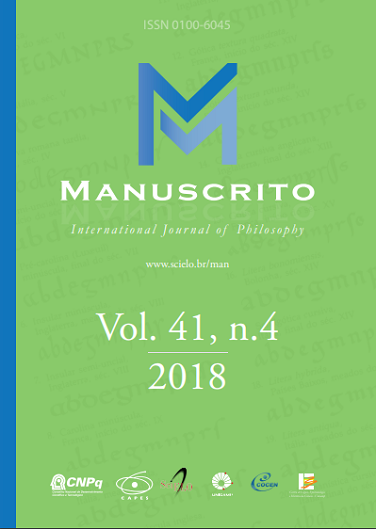Resumo
According to one interpretation of Aristotle’s famous thesis, to say that action is the conclusion of practical reasoning is to say that an action is a judgment about what to do. A central motivation for the thesis so understood is that it explains the non-observational character of practical knowledge. If actions are judgments, then whatever explains an agent’s knowledge of the relevant judgment can explain her knowledge of the action. I call the approach to action that accepts Aristotle’s thesis so understood Normativism. There are many reasons to doubt Normativism. My focus in this paper is a pair of arguments that purport to show that a normative judgment could not constitute an event in material reality and also the knowledge of such a happening. Both highlight a putative mismatch between the natures of, on the one hand, an agent’s knowledge of her normative judgment and, on the other, her knowledge of her own action. According to these objections, knowledge of action includes (a) perceptual knowledge and (b) knowledge of what one has already done. But knowledge of a normative judgment includes neither. Hence knowledge of action cannot simply be knowledge of a normative judgment. I show why these arguments fail.Referências
ANSCOMBE, G.E.M. Intention, Cambridge, MA.: Harvard University Press, 2000.
DAVIDSON, D. Essays on Actions and Events, Oxford: Clarendon Press, 1980.
ENC, B. (2003). How We Act. Oxford: Oxford University Press, 2003.
HAASE, M. (Forthcoming). Knowing by Doing in Beings and Doings, edited by Alexander Geddes and Alec Hinshelwood. Oxford: Oxford University Press.
HYMAN, J. How knowledge works. Philosophical Quarterly 49 (197):433-451, 1999.
MARCUS, E. Rational Causation. Harvard University Press, 2012.
MARCUS, E. (Manuscript). Reconciling Practical Knowledge with Self-Deception.
MARTIN, MICHAEL G. F. Out of the past: Episodic recall as retained acquaintance. In Christoph Hoerl & Teresa McCormack (eds.), Time and Memory. Oxford University Press. pp. 257—284, 2001.
MCDOWELL, J. What is the content of an intention in action? Ratio 23 (4):415-432, 2010.
PAUL, SARAH K. The conclusion of practical reasoning: the shadow between idea and act. Canadian Journal of Philosophy 43 (3): 287-302, 2013.
RÖDL, S. Self-Consciousness. Harvard University Press, 2007.
ROESSLER, J. Perception, Counterfactuals, and Special Causal Concepts. In Christoph Hoerl, Teresa McCormack & Sarah R. Beck (eds.), Understanding Counterfactuals, Understanding Causation. Oxford University, 2011.
SCHWENKLER, J. (Manuscript). Guide to Anscombe’s Intention.
STOUT, R. Practical reasoning and practical knowledge. Canadian Journal of Philosophy, 2018.
TENENBAUM, S. The conclusion of practical reason. In New Trends in Philosophy: Moral Psychology. Rodopi. pp. 323-343, 2007.
THOMPSON, M. Life and Action. Cambridge, MA: Harvard University Press, 2008.

